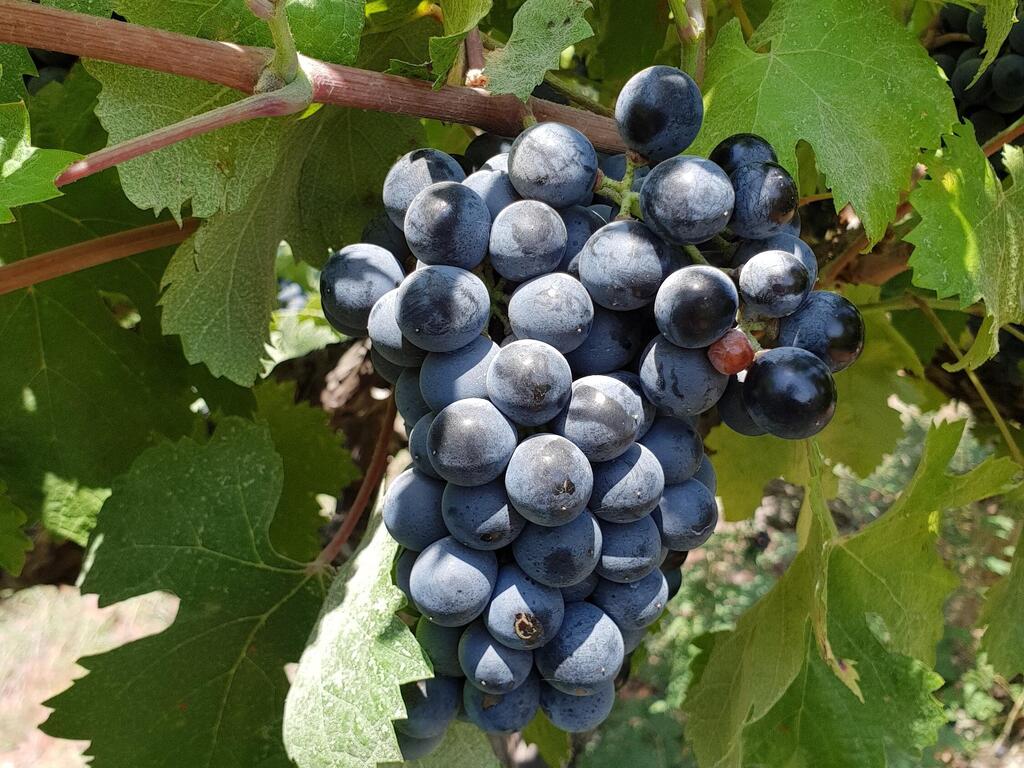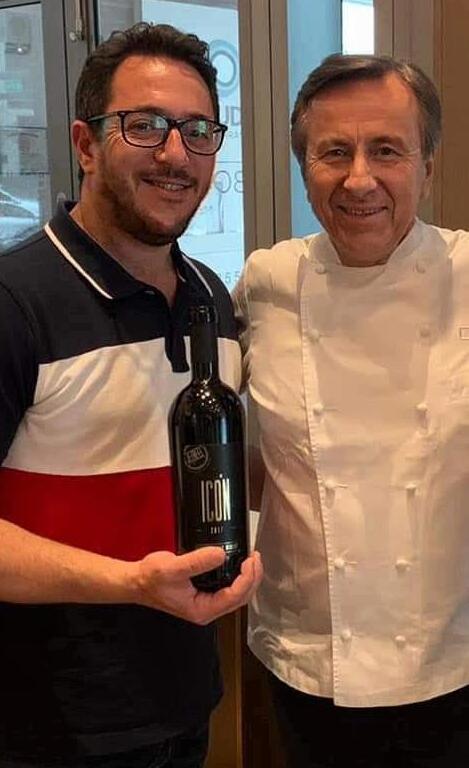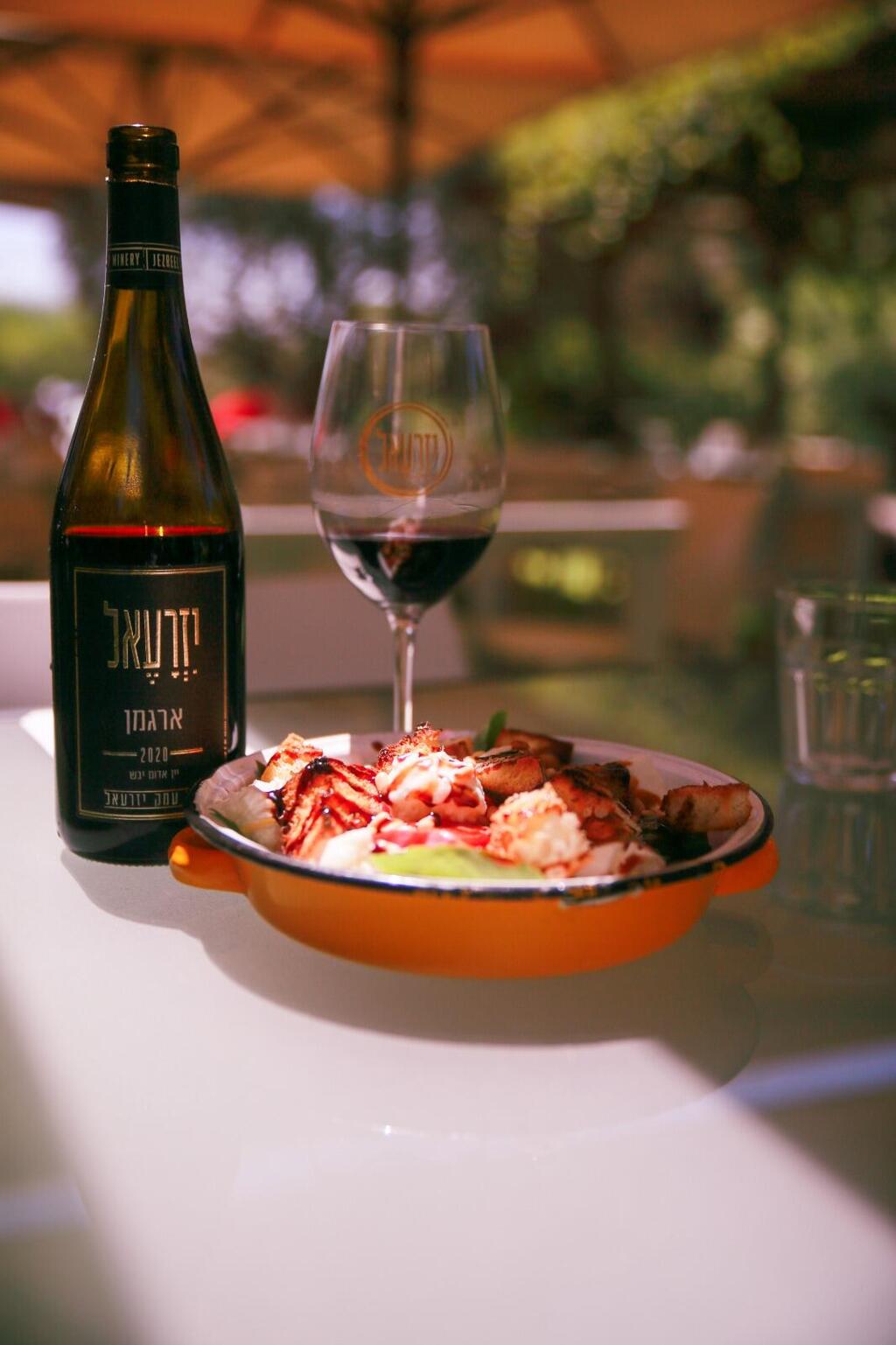For many years, Israelis favored wines made from French grape varieties, such as Cabernet Sauvignon, Merlot, and Syrah. Now Argaman wine, made from the only globally recognized Israeli grape variety is finding its way to some of the more celebrated eateries in the world.
More stories:
The creation of Argaman is attributed to Professor Pinhas Spiegel-Roy, who developed it at the Volcani Center in 1972, in collaboration with Shlomo Cohen from the Israeli Wine Institute.
While developing this new variety, the duo prioritized color over aroma and taste. Their goal was to create a grape variety that would offer a darker hue to the then-pale Israeli wines, making them resemble the French Bordeaux wines. The outcome was a hybrid of the Portuguese Sazu variety and the Spanish Carignan variety, yielding a wine with a deep, attractive purple tint. This led to the choice of the name Argaman, which is Hebrew for purple.
Despite the variety being registered as an Israeli patent in 1992, it was largely overlooked by Israeli wineries and was only occasionally used to enhance the color and presence of other wines. The initial adoption of the Argaman variety came from Carmel Winery which decided to add a small quantity to their popular Private Collection series, lending these lighter wines an air of gravitas and depth.
Avi Feldstein, a former winemaker at Segal Winery (now Barkan-Segal), later attempted to create unique wines exclusively using Argaman. Despite the novelty and foresight of this experiment, the wines it produced didn't gain much traction: they found little favor with Israeli wine critics and the public alike.
Barkan Winery continued to explore the variety, and eventually, Ido Lewinsohn, the winery's professional manager, opted to include Argaman in their adventurous Beta series, known for its experimentation with new varieties and unique wines, such as Israeli-style Pinot Noir and orange wine.
"At Barkan-Segal, we undertook extensive plantings of the Argaman variety just over a decade ago, as we have great faith in it," Lewinsohn says. "The wines produced are quite fruity, fresh, and exhibit a bold purple color. Adaptation to the Israeli climate is excellent, given that it's a hybrid of varieties from Portugal and Spain, both with a Mediterranean climate. I favor using it for wines, like those in the Beta series, as it's a robust wine on the one hand, yet refined with gentle and pleasant tannins on the other."
Barkan-Segal has recently launched the Argaman wine in their Beta series from the 2022 vintage. It's among the finest quality wines to have ever been made in the country. This marks the first instance of a sizable commercial winery manufacturing a high-quality wine composed solely of the Israeli variety.
This is a potent, slightly heavy wine, teeming with layers of flavors and spices, and is less suitable for casual settings like picnics or beach sunset viewings. This is a culinary wine, meant to be savored with a good meal, particularly meat or hearty winter dishes. The wine is indeed worth its price, which stands at approximately $25.
'I was searching for something uniquely ours, and Argaman is the only original variety that grows exclusively here'
An Israeli vibe
"In my opinion, the Israeli grapes will not catch on," Itay Lahat, a wine consultant for some of Israel's top wineries, said in a 2016 article. Today he does not seem to have changed his stance: "I'd be glad if my predictions were wrong and the Argaman variety turned into a significant success, but as of now, only a small amount of this variety is being produced in the country. It has yet to become a 'wow' wine or gain mainstream status in the industry."
Yehuda Nahar, a winemaker and the owner of Emek Yizrael Winery, offers a contrasting viewpoint. He said that his winery was created specifically for the Argaman grape: "Our entire winery was built around this grape because we aimed to make a wine that is fully Israeli. When we started the winery, we were working with a raw variety—not yet suitable for consumption—and we understood that wine development is a lengthy process," he said.
"We also realized that economically, for the winery's inception, we couldn't solely rely on a variety so unfamiliar to the public. Therefore, we branched out to other varieties that are a good fit for the Israeli climate, but the essence of why I wanted to make wine remains embodied in the Argaman."
Nahar said that his winery was established 12 years ago when there was hardly any real focus on wines, locally. "I came into an era where all the wineries in the country were producing French-style wines—what you'd call Bordeaux wines, based on Merlot, Cabernet Sauvignon, or Chardonnay. It was precisely then that the idea to create Mediterranean wines from varieties grown in Mediterranean countries began, but even that wasn't enough for me. I was searching for something uniquely ours, and Argaman is the only original variety that grows exclusively here," he said.
"The perception of this variety was esoteric; nobody considered it sexy. I decided to take a chance. There was an Israeli variety with untapped potential that hadn't been fully explored to achieve a high standard, and that's what intrigued me, he said."
How did they respond to the gamble?
"At that particular juncture, anyone who suggested creating a thoughtful wine that didn't carry the association of French or Californian wine was outside the norm. When I said I wanted to create 'something Israeli,' I was met with skepticism. Around the same time, a transformation was also beginning to take place in Israeli cuisine. Renowned chefs were opening restaurants all over the globe, with some enjoying substantial success. However, this evolution seemed to only occur in the restaurant realm, with the wine industry lagging behind. Even on the menus of these internationally-based Israeli chefs' restaurants, the wine selection was predominantly local, and not Israeli. If they did opt to feature one or two Israeli wines, they were typically in the Bordeaux style."
Overseas success
Nahar and his team dedicated several years to meticulous experimentation at the winery, focusing on the cultivation of grapes, optimal harvest times, maceration durations, and fermentation techniques, all in pursuit of maximizing the potential of their grape variety. The initial harvest in 2012 was not a success. Nahar reflects, "During fermentation, the skins broke down, resulting in a wine that was overly aggressive and tough to drink. However, it was a starting point that helped us begin to understand the right approach through a process of elimination."
By the time of their second harvest in 2013, they began to see promising results: "We were pleased with the outcomes. It became clear that this wine was meant to realize a culinary dream. I immediately saw that it would pair well with Israeli cuisine, characterized by its fruitiness, spiciness, and, crucially, natural acidity. We began production of around 3,000 bottles. This venture was our livelihood, as our primary focus was on Eastern Mediterranean wines like Carignan and Syrah. Yet, from our very first Argaman bottle, we positioned it as our flagship wine, even in terms of price, challenging the prevailing Israeli wine industry norms of that era."
As the harvest seasons advanced, Nahar started promoting his Argaman variety, his premium wine, in overseas restaurants. "The feedback was phenomenal, initially from Israeli chefs and establishments serving Middle Eastern cuisine."
His wine gradually found its way onto the top wine menus of renowned Israeli chefs, in places like Balaboosta in New York by Einat Admony, Shemona by Eyal Shani, Noor by Meir Adoni, Arba by Nir Zuk, and also Michelin-starred restaurants such as Saison by Julian Diaz, Daniel Boulud in Miami and most recently, AM, a three-Michelin-star restaurant by chef Alexandre Mazzia in Marseille. "The crowning moment came in 2022 when the esteemed 'Decanter' magazine awarded our 2017 'Argaman' wine a score of 96 - the highest rating an Israeli wine has ever received."
Today, Nahar continues the 11th harvest of the Argaman variety. The winery annually produces around 90,000 bottles, with approximately 8,000 dedicated to its flagship wine - the Argaman. "Nowadays, we hardly need to ask people if they're familiar with the variety, especially not those who visit the winery."
Professor Spiegel passed away in 2015. Before his death, he managed to visit Nahar's winery and see the fruits of the grape variety he had developed. "He was deeply moved," Nahar said. "He claimed that this outcome was certainly not what he intended, but he was genuinely excited about the result."
The Argaman variety is also sporadically utilized by a handful of other wineries. "I firmly believe this variety will gain traction," Nahar said. "The process and transformation here are slow-going. It might take another decade - but Argaman is undeniably the local variety of the State of Israel."
Nahar concludes optimistically, "I firmly believe this variety will gain traction and become central. The process and transformation here are slow-going. It might take another decade - but Argaman is undeniably the local variety of the State of Israel."





